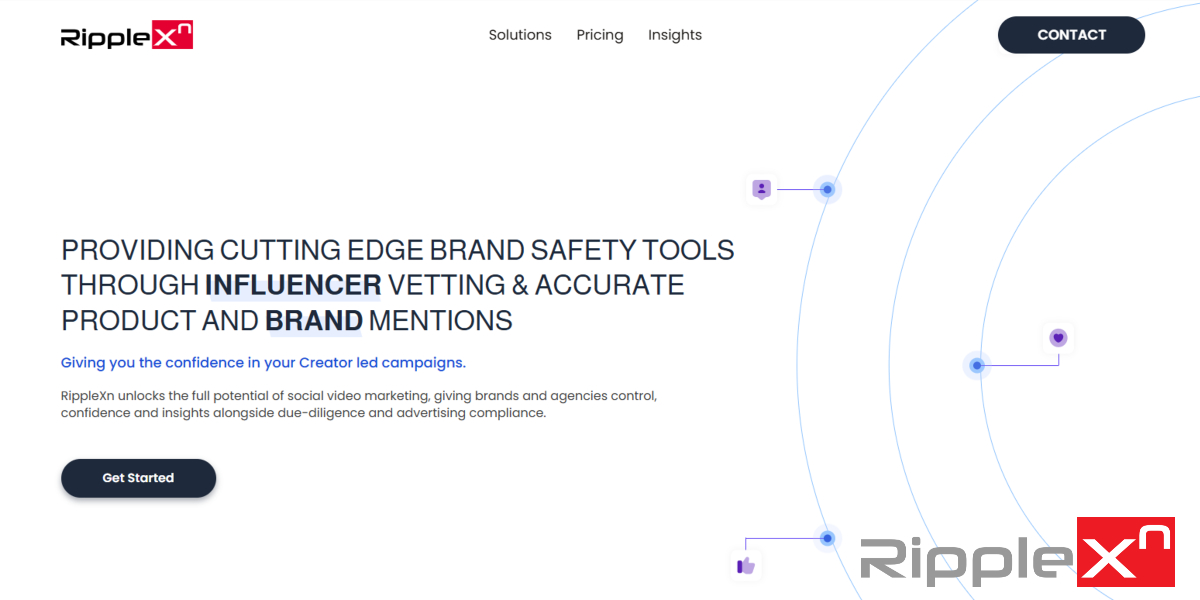Q. Are you getting what you paid for? How do you check? And, what to do if not?
What is an influencer marketing contract?
An influencer marketing contract is a legally binding agreement between a brand and an influencer that outlines the terms of their collaboration. These contracts are crucial for defining the scope of work, deliverables, payment terms, and other essential details. They serve as a safeguard for both parties, ensuring clarity and mutual understanding from the outset.
Key components of an influencer marketing agreement
A well-structured influencer marketing contract typically includes:
- Scope of work: Detailed description of the collaboration to be created and the platforms where it will be posted.
- Deliverables: Specifics about the number of posts, stories, videos, etc.
- Specific content: If they need to say any specifics e.g. brand name, new feature etc.
- Jurisdiction: Especially important for advertising compliance, and whether any specific works or your brands codified practices.
- Deadlines: Timelines for content creation, review, and publication.
- Remuneration: Payment terms, including amounts, payment methods, and when.
- Usage rights: Clauses outlining how the brand can use the created content, or not.
- Termination clause: Conditions under which the contract can be ended by either party.
Different types of influencer collaborations
Influencer collaborations can come in various forms, each with its own set of expectations and deliverables.
One-time campaigns vs. long-term partnerships
- One-time campaigns: These are short-term engagements where influencers promote a product or service in a single or limited way.
- Long-term partnerships: These involve ongoing collaborations where influencers consistently promote a brand, product or service, over an extended period, providing sustained visibility and engagement.
Read about the most common types of collaborations >>
Potential pitfalls in influencer contracts
Despite the structured agreements, influencer marketing is not without its challenges. Common pitfalls include:
- Misalignment of expectations: Discrepancies between what the brand expects and what the influencer delivers.
- Non-compliance: Influencers failing to adhere to contract terms or deliverables.
- Audience mismatch: Collaborations with influencers whose audience does not align with the brand’s target market
The contract is only the paperwork. Many collaborations, especially when dealing with micro-influencers or any campaign at scale may not have a formal contract. What happens in this scenario?
Are you getting what you paid for?
Ensuring that you receive what you paid for is vital in influencer marketing, just like in any commercial relationship.
The first challenge is finding all the content that is produced? Then...
Assessing deliverables and performance metrics
- Content quality: Ensuring the content meets the brand’s standards and aligns with the campaign’s objectives.
- Engagement metrics: Tracking likes, comments, shares, and other interactions to gauge the content’s impact.
- Contractual checks: Did they say what you needed them to say, and in the right way and context.
- Advertising compliance: Did they comply with your specific requirements or preferred terms? Or any terms? Without this, you could be paying twice!
How to verify influencer deliverables
Verification of influencer deliverables ensures that the content is published as agreed and meets the expected standards.
Tracking and analytics tools
Using tracking tools like Google Analytics, social media insights, and influencer marketing platforms can help monitor the performance of the campaign.
Note: RippleXn can find and analysis content across all the social platforms >>
Manual vs. Automated verification methods
- Manual verification: Involves personally checking the influencer’s posts, stories, and other deliverables.
- Automated verification: Utilizing software to track and report on the campaign’s performance.
Question: what is your current process?
What to do if the influencer doesn’t deliver?
Even with the best contracts, there can be instances where influencers fail to deliver as promised.
Steps to address non-compliance
- Review the contract: Ensure that the terms of non-compliance are clearly defined.
- Communicate with the influencer: Discuss the issue and seek a resolution.
- Document the issue: Keep detailed records of the non-compliance and communication.
The question to ask here is only a question, once you have been able to find and check all the occurrences across all the platforms.
Legal remedies and contractual clauses
Contracts should include clauses that address non-compliance, such as penalties, refunds, or the right to terminate the agreement. Legal action can be a last resort if amicable solutions are not found.
Advertising compliance and you legal obligations
Compliance with advertising regulations is critical to avoid legal issues and maintain credibility.
Adhering to FTC guidelines and international regulations
Influencers must disclose sponsored content to comply with the Federal Trade Commission (FTC) guidelines and other international regulations and regulators requirements. There are even more in protected industries.
Avoiding legal pitfalls in influencer marketing
Clear contract terms and regular compliance checks can help avoid legal pitfalls, ensuring that both the brand and the influencer adhere to all relevant laws and regulations. In influencer marketing a collaboration can be for the duration of the agreement or in some countries up to a year even for a short term campaign.
Building strong influencer partnerships
Long-term success in influencer marketing is built on strong, mutually beneficial partnerships.
Best practices for long-term success
- Clear communication: Regular and transparent communication helps in building trust.
- Mutual respect: Recognizing and valuing the influencer’s creativity and audience.
- Flexibility: Being open to adjustments based on the influencer’s feedback and audience response.
Processing payments after the campaign
Ensuring smooth and timely payments post-campaign is crucial for maintaining good relationships with influencers.
But when should you pay?
The simple answer is when the contract is complete.
The question is how do you check? And, check them all?
By following these guidelines, brands can navigate influencer marketing contracts effectively, ensuring they get what they paid for and fostering successful long-term partnerships.
Why inhouse teams and brands need RippleXn
As RippleXn’s tools understand what creators have written and importantly, said.
The cutting edge tools allow you to find all content across all of the platforms and at scale check against your contractual terms, advertising compliance and any other topic or keyword that matters. Talk to the team for a demonstration.






